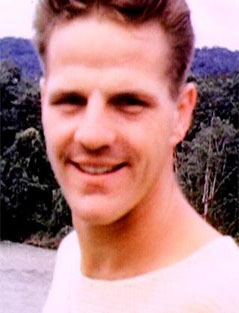A Quote by Marcel Proust
A man may have spent his life among the great ones of the earth, who to him have been merely boring relatives or tedious acquaintances because a familiarity engendered in the cradle had stripped them of all glamour in his eyes.
Related Quotes
A man may have lived all of his life in the gray, and the land and trees of him dark and somber. The events, the important ones, may have trooped by faceless and pale. And then-the glory-so that a cricket song sweetens his ears, the smell of the earth rises chanting to his nose, and dappling light under a tree blesses his eyes. Then a man pours outward, a torrent of him, and yet he is not diminished.
There were times when it appeared to Dorian Gray that the whole of history was merely the record of his own life, not as he had lived it in act and circumstand, but as his imagination had created it for him, as it had been in his brain and in his passions. He felt that he had known them all, those strange terrible figures that had passed across the stage of the world and made sin so marvellous, and evil so full of subtlety. It seemed to him that in some mysterious way their lives had been his own.
Those who merely possess the goods of fortune may be haughty and insolent; . . . they try to imitate the great-souled man without being really like him, and only copy him in what they can, reproducing his contempt for others but not his virtuous conduct. For the great-souled man is justified in despising other people - his estimates are correct; but most proud men have no good ground for their pride.
Perhaps his gloom was due to his profession, that he lived among fallen empires, and in reading these languages that had not been spoken by the common man in centuries, he had all about him the ruin of language, evidence of toppled suburbs, grass growing among the mosaics, and voices that had been choked with poison, iron, age, or ash.
So long as men desire to live together, no man may initiate the use of physical force against others. . . . When a man attempts to deal with me by force, I answer him by force. It is only as retaliation that force may be used and only against the man who starts its use. No, I do not share his evil or sink to his concept of morality: I merely grant him his choice, destruction, the only destruction he had the right to choose: his own.
But then if you lied to a man about his talent just because he was sitting across from you, that was the most unforgivable lie of them all, because that was telling him to go on, to continue which was the worst way for a man without real talent to waste his life, finally. But many people did just that, friends and relatives mostly.
Oh, the fullness, pleasure, sheer excitement of knowing God on Earth! I care not if I never raise my voice again for Him, if only I may love Him, please Him. Mayhap in mercy He shall give me a host of children that I may lead them through the vast star fields to explore His delicacies whose finger ends set them to burning. But if not, if only I may see Him, touch His garments, smile into His eyes - ah then, not stars nor children shall matter, only Himself.
Prosperity knits a man to the world. He feels that he is finding his place in it while really it is finding its place in him. His increasing reputation, his widening circle of acquaintances, his sense of importance, the growing pressure of absorbing and agreeable work build up in him a sense of being really at home on earth which is just what we want.
Have you ever been anyone's?" I ask, a feathery whisper in the quiet bedroom. He lifts his head to mine, and I want him so bad I feel consumed inside, like he's already possessed my soul, and now my soul aches for him to possess my body. A powerful emotion tightens his features as he reaches out to cradle my cheek in his big hand, and there's an unexpected fierceness in his eyes, in his touch, as he cups me. "No. And you?" The calluses in his palm rasp on my skin, and I find myself tucking my cheek deeper into them. "I've never wanted to." "Neither have I." The moment is intimate.
she, with her affection and her gaiety, had been largely responsible for him having rediscovered the meaning of life, her love had driven him to the far corners of the Earth, because he needed to be rich enough to buy some land and live in peace with her for the rest of their days. It was his utter confidence in this fragile creature, that had made him fight with honor, because he knew that after a battle he could forget all the horrors of war in her arms, and that, despite all the women he had known, only there in her arms could he close his eyes and sleep like a child.
Truly, there are terrible primal arcana of earth which had better be left unknown and unevoked; dread secrets which have nothing to do with man, and which man may learn only in exchange for peace and sanity; cryptic truths which make the knower evermore an alien among his kind, and cause him to walk alone on earth.
Christianity set itself the goal of fulfilling man’s unattainable desires, but for that very reason ignored his attainable desires. By promising man eternal life, it deprived him of temporal life, by teaching him to trust in God’s help it took away his trust in his own powers; by giving him faith in a better life in heaven, it destroyed his faith in a better life on earth and his striving to attain such a life. Christianity gave man what his imagination desires, but for that very reason failed to give him what he really and truly desires.
Human life, from the cradle to the grave, is a school. At every period of his existence man wants a teacher. His pilgrimage upon earth is but a term of childhood, in which he is to be educated for the manhood of a brighter world. As the child must be educated for manhood upon earth, so the man must be educated upon earth, for heaven; and finally that where the foundation is not laid in time, the superstructure can not rise for eternity.




































